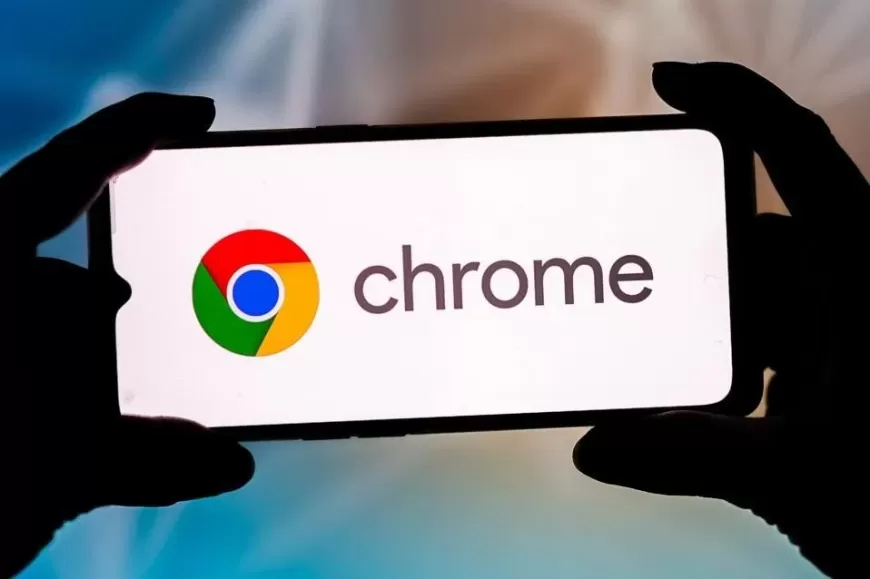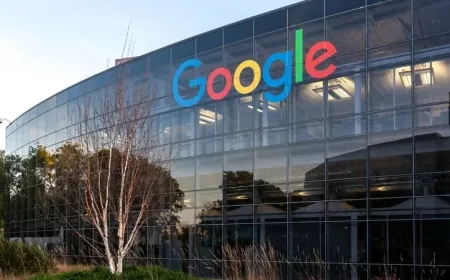Google Chrome Could Be Worth $20 Billion if DOJ Pushes for Sale
Google Chrome could be sold for $20 billion under DOJ antitrust proposals, potentially reshaping the tech landscape. Learn what this means for search, AI, and digital competition.

Google’s Chrome browser, a cornerstone of Alphabet Inc.’s dominance in the digital world, could be sold for as much as $20 billion. This comes as the U.S. Department of Justice (DOJ) intensifies its efforts to curb monopolistic practices in the tech industry. If the proposal goes through, it would mark one of the most significant actions ever taken to reshape the competitive landscape of the internet and digital advertising.
Here’s what’s happening, why it matters, and what it could mean for the future of technology and competition.
Why Chrome Is at the Center of This Antitrust Case
Chrome isn’t just a browser—it’s an essential gateway to the internet for more than 3 billion users globally. Its dominance allows Google to collect vast amounts of user data, which powers its highly lucrative advertising business and AI initiatives. Chrome accounts for over 61% of the U.S. browser market, making it a critical tool in Google’s ecosystem.
The DOJ’s concern is that Chrome gives Google too much control over how people access and interact with the internet. This dominance allegedly stifles competition by favoring Google’s products and services, from search results to its emerging AI platform, Gemini.
Potential Remedies: What the DOJ Wants
The DOJ’s proposals go beyond just selling Chrome. They aim to dismantle practices that create an unfair advantage for Google. Key measures include:
-
Licensing Search Data: Google may be required to sell “click and query” data—valuable insights derived from user interactions with its search engine—to competitors.
-
Syndicating Search Results: Google could be forced to make its search results available to other companies without restrictions, enabling rival search engines to compete on a more level playing field.
-
Unbundling Android: The DOJ might require Google to separate its Android operating system from other services like search and Google Play to reduce its grip on mobile ecosystems.
What Happens If Chrome Is Sold?
If Chrome is sold, its valuation could range between $15 billion and $20 billion, given its massive user base. However, a sale would come with challenges:
-
Finding a Buyer: The new owner would need to have both the resources and a vision for maintaining Chrome’s appeal. AI-focused companies like OpenAI could benefit from such a purchase, using Chrome’s reach to expand their platforms.
-
Regulatory Approval: Any potential buyer would have to pass intense scrutiny. Larger tech firms like Amazon might face roadblocks due to their own antitrust issues.
-
Changes for Users: Under new ownership, Chrome could shift its business model. While currently free, new owners might explore subscription-based models or other monetization strategies, potentially affecting user experience.
The Stakes for Google
For Alphabet, Chrome isn’t just a browser—it’s a cornerstone of its strategy. It integrates with Google’s search engine and AI products, driving user engagement and revenue. Losing Chrome would not only dent Alphabet’s advertising dominance but also impact its ability to compete in the AI race.
Google has defended its practices, arguing that breaking up its ecosystem would harm innovation and limit consumers' access to free, high-quality services. Critics, however, see this as a necessary step to ensure a fair and competitive market.
What a Chrome Sale Could Mean for the Internet
Selling Chrome wouldn’t just be a major change for Google—it could fundamentally reshape how the internet works for everyone. For years, Chrome has been the default gateway to the web for billions of people, seamlessly tied to Google’s ecosystem. Breaking that connection could lead to big changes, like:
-
More Competition in Search: Right now, using Chrome often means using Google Search. If Chrome becomes independent, it could open doors for other search engines to compete for users more fairly, potentially offering better choices and less biased results.
-
Changes in Advertising: Google’s massive advertising business is fueled by the data it gathers through Chrome. A new owner might approach user data differently, which could lead to fewer targeted ads—or a shift in how ads are shown altogether.
-
Fresh Innovation in AI: Chrome currently drives traffic to Google’s AI tools like Gemini. A new owner might use Chrome to promote different AI technologies, diversifying the industry and giving smaller companies a chance to shine.
While these changes sound promising, they’re not without risks. Whoever buys Chrome will need to invest heavily to maintain its reliability and appeal, and users might face changes in how the browser works or is funded. Still, for many, the potential for more choice and innovation outweighs the downsides.
What to Expect Next
The DOJ’s recommendations will be considered by federal judge Amit Mehta, who is expected to make a final ruling by August 2025. Meanwhile, hearings in April 2025 will focus on what changes Google must implement to comply with antitrust laws.
The road ahead is complex, and the ultimate outcome could redefine the tech industry. For consumers, this may translate to more competition, better services, and increased transparency.
Key Takeaways for Readers
-
For Businesses: Keep an eye on how these changes could open up new opportunities in AI and digital advertising. Competitors may gain access to data and tools previously monopolized by Google.
-
For Consumers: A more competitive market could lead to improved services, but there may also be trade-offs, such as potential costs for previously free tools like Chrome.
-
For Investors: Alphabet’s stock has remained stable despite these challenges, but long-term implications could impact its valuation and growth prospects.
Also Read: Russian Court Fines Google $38,000 for Non-Compliance with Content Removal Orders































































